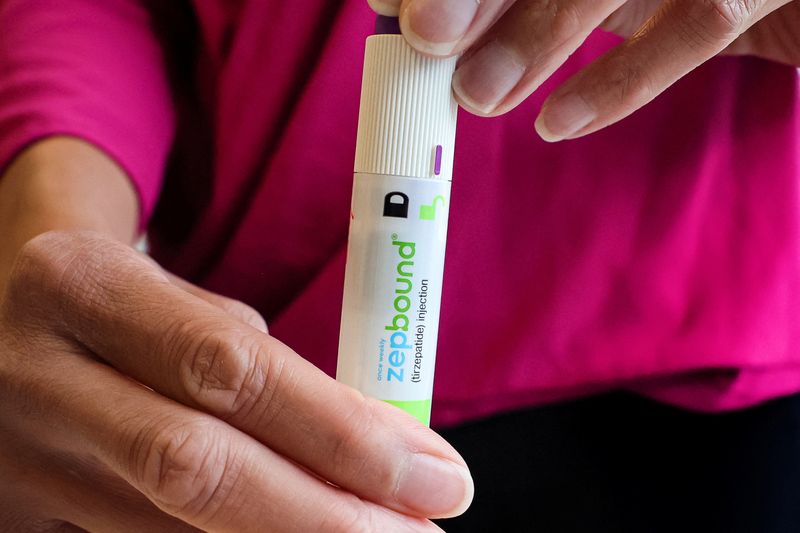By Bhanvi Satija
(Reuters) -The U.S. Food and Drug Administration on Friday approved Eli Lilly’s (NYSE:) weight-loss treatment Zepbound for obstructive sleep apnea, making it the first drug to get the green light to directly treat patients with the common sleep disorder.
The regulator approved the drug for moderate to severe obstructive sleep apnea in adults with obesity, the company said.
The approval opens up a broad patient market for Lilly, at a time when demand for Zepbound is already on the rise.
It could also strengthen Lilly’s case with commercial insurers and employers, who previously have been hesitant to cover the drug because of its high cost.
Shares of the Indianapolis-based drugmaker rose 1.14% in aftermarket trading after the announcement.
Patients with sleep apnea stop breathing briefly while sleeping, disrupting the sleep cycle and causing long-term complications such as heart disease. The condition affects approximately one billion people worldwide.
“Too often, obstructive sleep apnea is dismissed as ‘just snoring,’ but it’s much more than that,” says Julie Flygare, CEO of the nonprofit Project Sleep.
Common treatments for the condition include CPAP machines, which involve wearing a mask over the face while sleeping, surgery, and weight loss.
Zepbound and Lilly’s widely used diabetes drug, Mounjaro, both chemically called tirzepatide, belong to a class of drugs called GLP-1 agonists.
Originally developed for type 2 diabetes, they also reduce food cravings and make the stomach empty more slowly.
US-based Lilly and Danish rival Novo Nordisk (NYSE:) are testing their blockbuster anti-obesity drugs for a range of conditions as they race to prove they have other health benefits.
Regulators can expand drug approvals if new data shows they are effective in other therapeutic areas.
The FDA approval is based on data from two studies involving 469 participants, in which Zepbound helped alleviate breathing difficulties in patients with moderate to severe obstructive sleep apnea.
The drugmaker published the full data in June, which showed the drug helped resolve the condition in up to 52% of patients in these studies.
Trial data also showed that Zepbound reduced so-called biomarkers of sleep apnea, including low blood oxygen levels and low blood pressure, which can indicate heart disease.
Government-backed Medicare plans for adults 65 and older and people with disabilities are not allowed to cover weight loss treatments, although the Biden administration has proposed expanding coverage of obesity medications.

If the incoming administration of President-elect Donald Trump supports this move, the program would be in effect from 2026.
Medicare only started covering Novo Nordisk’s Wegovy after it received approval in March for reducing the risk of heart attacks and strokes.


